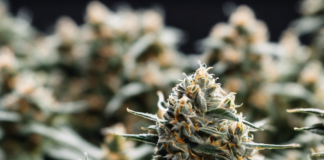Introduction
Exploring the enigmatic mind of a psycho Duke provides a unique insight into the complexities of human psychology. In this comprehensive article, we will delve into the various facets of the psycho Duke’s personality, his behaviors, motivations, and the underlying psychological factors that contribute to his actions.
Understanding the Psycho Duke
The term “psycho Duke” refers to an individual with narcissistic tendencies, manipulative behaviors, and a strong inclination towards power and control. These traits often stem from a deep-seated sense of insecurity and low self-esteem, which the Duke attempts to compensate for by exerting dominance over others.
Traits of a Psycho Duke
-
Narcissism: The psycho Duke displays an excessive sense of self-importance, a need for excessive admiration, and a lack of empathy for others.
-
Manipulative Behavior: The Duke exploits others for his own gain, gaslights them to maintain control, and manipulates situations to suit his agenda.
-
Aggression: Underneath the facade of charm and charisma lies a propensity for aggression and emotional volatility.
-
Superiority Complex: The Duke harbors a deep-seated belief in his own superiority over others, leading to a disdainful attitude towards those he deems inferior.
Psychological Underpinnings
The psycho Duke’s behavior can be traced back to various psychological factors, including:
-
Childhood Trauma: Past experiences of neglect, abuse, or abandonment may contribute to the Duke’s development of maladaptive behaviors.
-
Personality Disorders: The Duke may exhibit traits of narcissistic personality disorder, antisocial personality disorder, or borderline personality disorder.
-
Power Dynamics: The Duke’s need for power and control stems from a heightened sense of insecurity, driving him to assert dominance over others.
The Cycle of Manipulation
The psycho Duke typically engages in a repetitive cycle of manipulation, which includes:
-
Idealization: Initially, the Duke idealizes his target, showering them with attention and admiration to gain their trust.
-
Devaluation: Once the Duke feels secure in his control, he devalues the target, belittling and undermining them to maintain dominance.
-
Discard: Ultimately, the Duke may discard the target once they no longer serve his purposes, moving on to seek new sources of validation and control.
Impact on Relationships
Being involved with a psycho Duke can have serious repercussions on one’s mental and emotional well-being. Victims of the Duke’s manipulation may experience:
-
Gaslighting: The Duke’s manipulation tactics can lead to gaslighting, causing the victim to doubt their own perceptions and reality.
-
Emotional Abuse: The Duke’s devaluation and emotional volatility can result in emotional abuse, leading to feelings of anxiety, depression, and low self-esteem.
-
Isolation: Victims of the psycho Duke may become isolated from friends and family as the Duke seeks to control and isolate them for his own purposes.
Seeking Help
If you find yourself in a relationship with a psycho Duke or suspect that someone you know exhibits similar traits, it is essential to seek professional help. Therapy can provide valuable insights into navigating and recovering from toxic relationships.
Frequently Asked Questions (FAQs)
-
Q: How can I identify if someone is a psycho Duke?
A: Look out for red flags such as manipulative behaviors, narcissism, and a pattern of controlling others. -
Q: Can a psycho Duke change their ways?
A: While change is possible with intensive therapy and commitment to personal growth, it is essential to approach with caution and set necessary boundaries. -
Q: What should I do if I suspect someone I know is a psycho Duke?
A: Seek support from friends, family, or a mental health professional, and distance yourself from the individual if necessary. -
Q: Are all Dukes inherently psycho?
A: No, not all Dukes exhibit psycho or manipulative behaviors. It is essential to consider individual characteristics and behaviors when assessing someone’s psychological profile. -
Q: Can a psycho Duke be helped?
A: With the right therapeutic approach and commitment to change, a psycho Duke can benefit from psychological intervention and work on improving their behaviors.
Conclusion
In conclusion, unraveling the mind of a psycho Duke sheds light on the complexities of maladaptive behaviors, narcissism, and manipulation. By understanding the psychological factors that contribute to the Duke’s actions, individuals can better identify, address, and protect themselves from such toxic dynamics. Remember, seeking professional help and setting boundaries are crucial steps towards healing and recovery from relationships with psycho Dukes.






